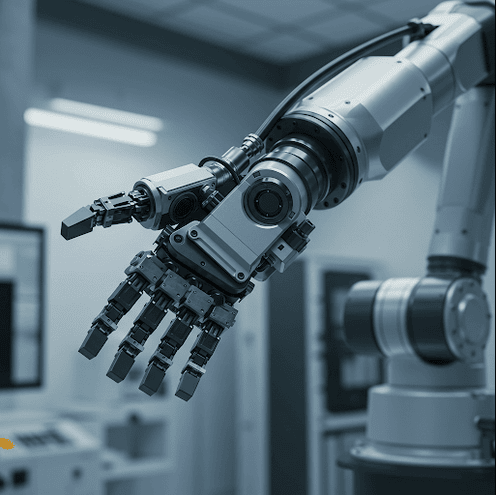Modern technology continues to transform at an unprecedented rate which impacts our working patterns and everyday life. The fast-evolving technological landscape changes both modern technology directions and the professional roles of IT experts in this environment. The analysis from Gartner shows that key transformative innovations identified by their research will reshape industries through disruption as they push businesses toward increased success during the next few years.

What does this mean for you? The path to career security demands your ability to anticipate the development of new technologies. The following article guides you through the most significant technological patterns which will transform industry patterns and teaches relevant competencies for success in these technologies.
We will discuss the top 8 emerging technologies, including:
1. Generative AI
We will discuss top 8 emerging technologies, including:
- Generative AI
- Quantum Computing
- 5G Expansion
- Virtual Reality (VR) 2.0
- Internet of Things
- Blockchain
- Advanced Robotics
- AI in Cybersecurity
1. Generative AI
The discussion about gen-AI begins the list which outlines new technology trends. Generative AI stands as the main technology trend for 2025 because it transforms industries with its ability to produce sophisticated content that simulates human work across various forms such as texts and images and audio visual presentations and complex electrical simulations. Current advancements in generative model technology particularly GPTs and multimodal systems have paved the way for new applications which span from content production to design automation and interactive user experiences.

The technology enhances business productivity and completely transforms industrial problem-solving processes while changing customer engagement methodologies and creative practices while achieving universal tool flexibility across different industries. Organizations will maintain their focus on implementing generative AI within their workflows during 2025 to develop faster innovations alongside personalized large-scale services.
2. Quantum Computing
The power of quantum mechanics enables quantum computers to complete information tasks exponentially faster than classical systems for certain operations. The field of quantum computing advances into two new applications during this year in drug discovery through accurate molecular structure prediction and plus cryptography by potentially unblocking secure codes currently in use.

Quantum computing technology remains at an early stage yet demonstrates great potential to industrial transformation through the solving of large-scale problems that exceed ordinary computers.
3. 5G Expansion
The next emerging technology trend is 5G! The fifth generation of mobile networks, 5G, promises significantly faster data download and upload speeds, wider coverage, and more stable connections. The expansion of 5G is facilitating transformative technologies like IoT, augmented reality, and autonomous vehicles by providing the high-speed, low-latency connections they require.

This technology is crucial for enabling real-time communications and processing large amounts of data with minimal delay, thereby supporting a new wave of technological innovation.
4. Virtual Reality (VR) 2.0
Enhanced Virtual Reality (VR) technologies are offering more immersive and realistic experiences. With improvements in display resolutions, motion tracking, and interactive elements, VR is becoming increasingly prevalent in gaming, training, and therapeutic contexts.

New VR systems are also becoming more user-friendly, with lighter headsets and longer battery life, which could lead to broader consumer adoption and integration into daily life.
5. Internet of Things
IoT technology in smart cities involves the integration of various sensors and devices that collect data to manage assets, resources, and services efficiently. This includes monitoring traffic and public transport to reduce congestion, using smart grids to optimize energy use, and implementing connected systems for public safety and emergency services. As cities continue to grow, IoT helps manage complexities and improve the living conditions of residents.

6. Blockchain
Initially developed for Bitcoin, blockchain technology is finding new applications beyond cryptocurrency. Industries are adopting blockchain for its ability to provide transparency, enhance security, and reduce fraud. Uses include tracking the provenance of goods in supply chains, providing tamper-proof voting systems, and managing secure medical records.

7. Advanced Robotics
Robotics technology has evolved to create machines that can perform complex tasks autonomously or with minimal human oversight. These robots are employed in various sectors, including manufacturing, where they perform precision tasks, healthcare as surgical assistants, and homes as personal aids. AI and machine learning advances are making robots even more capable and adaptable.

8. AI in Cybersecurity
AI is critical in enhancing cybersecurity by automating complex processes for detecting and responding to threats. AI systems can analyze vast amounts of data for abnormal patterns, predict potential threats, and implement real-time defenses. This trend is crucial in addressing cyber attacks’ increasing sophistication and frequency.



